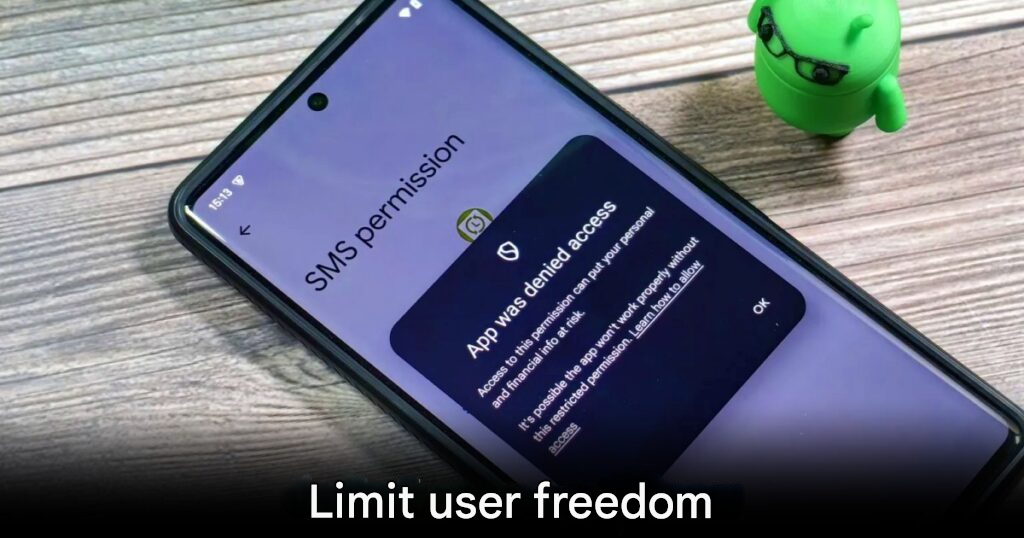
F-Droid Blasts Google’s Assurance on Android Sideloading as Misleading
The tension between Google and the open-source community reached a new high following Google’s announcement of a new Android Developer Verification program. Despite Google’s repeated assurance that sideloading is “fundamental to Android and it’s not going anywhere,” the alternative app store F-Droid has publicly challenged this claim, calling it “clear, concise, and false.” The core dispute centers on Google’s new policy, set to roll out in phases starting in 2026, which F-Droid argues will fundamentally destroy the open nature of the Android ecosystem across the globe.
Google’s Stance: Security and Traceability
Google defends the new developer verification system as a necessary security measure intended to protect consumers from malware and scams.
- Security Rationale: Google cites internal data suggesting that apps from internet-sideloaded sources contain “over 50 times more malware” than those available on the Google Play Store. The company states that malicious actors often hide behind anonymity to reappear with new apps.
- The New Requirement: The verification process requires every app developer worldwide—even those not publishing on the Play Store—to register with Google, pay a fee, provide government identification (ID), and link their apps to a registered Google account.
- The Assurance: Google maintains that this process enhances security and traceability while preserving the technical ability to install apps from outside the Play Store.
F-Droid’s Rebuttal: The End of Openness
F-Droid, which distributes only free and open-source software (FOSS) and inspects apps for trackers and ads, argues that Google’s policy is a move toward a “walled garden” similar to Apple’s iOS, fundamentally changing what “sideloading” means.
- Loss of Freedom: F-Droid contends that the new rules effectively end the user’s ability to choose what software runs on their own devices without Google’s explicit approval. If an app must be approved by Google to be installed on a certified Android device, the freedom and openness of sideloading are gone.
- Threat to Open Source: The new policy poses an existential threat to alternative app distribution platforms like F-Droid. The requirements—providing government ID, paying a registration fee, and agreeing to Google’s terms—are a severe barrier for hobbyists, independent developers, and non-profit projects whose ethos is built on transparency and non-centralized distribution.
- The Terminology Dispute: F-Droid also takes issue with the term “sideloading” itself, arguing that it was coined by platform holders to imply that installing software outside their store is inherently risky or somehow unauthorized, rather than simply “installing” software on one’s own device.
- Monopoly Concerns: F-Droid urges regulators, including those involved in the European Union’s Digital Markets Act (DMA), to scrutinize the decree, warning that the system centralizes too much power and could constitute an illegal curb on competition by creating a “choke point” for all app distribution.
What This Means for Users and Developers
The new developer verification system is expected to be rolled out to virtually every Android Certified device globally, impacting the vast majority of the market. While technical users may still be able to install unverified apps via methods like ADB (Android Debug Bridge), the system is designed to block non-verified apps from being easily installed by the general public. For many open-source projects, this means they can no longer share their work directly with their community without first submitting to Google’s control.
origin: Androidauthority
Our Take: The Illusion of Choice
Google’s insistence that sideloading “isn’t going anywhere” is technically true in the same way that a gate is still technically a part of a wall; it just means you can’t walk through it without permission. The requirement to register, pay, and surrender government ID fundamentally changes the process from an unfettered right to a corporate-mandated privilege. The biggest losers are the independent developers and the principle of an open computing platform. The fight for the soul of Android is no longer about technology; it’s about digital control.





